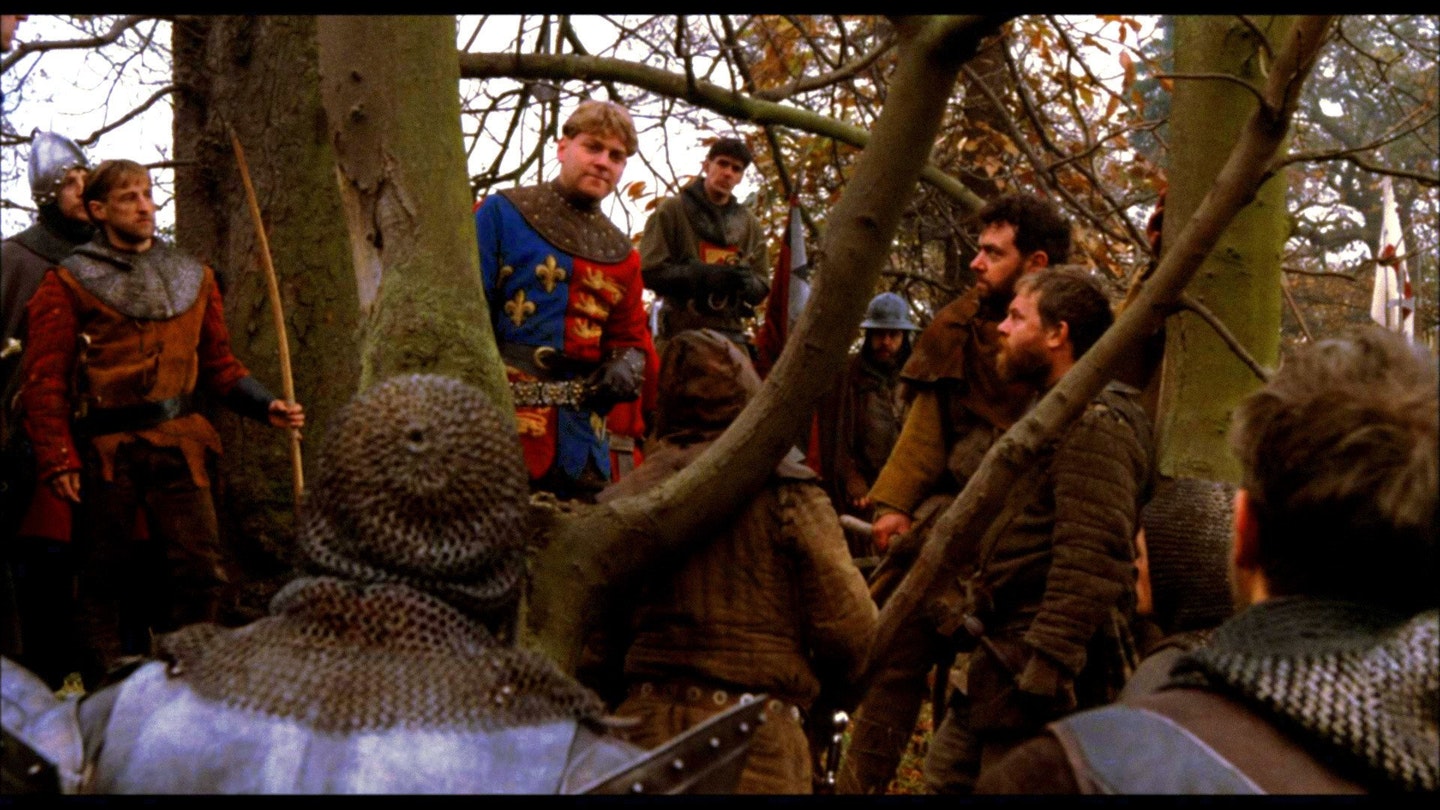Kenneth Branagh's bold decision to open his career as a film director with Henry V was brought into even sharper focus by the death of Laurence Olivier just two months prior to its release. Olivier also made his directorial debut with it in 1944, and his performance as Henry - perhaps like his Hamlet, and certainly like his Richard III - is regarded as pretty close to definitive. So it wasn't only the Bard that the 28-year old Branagh is taking on here; 'twas also the stuff of film legend.
A tall order then - comparisons could hardly be more invidious. But Branagh has grasped the nettle, and it's a relief as much as a pleasure to see him emerge with credit, both as a director and performer. This is despite, rather than because of, a strange conviction he outlines in the production notes. Olivier's film was made in the heat of World War II, and its impossible not to see part of it as an exercise in propaganda. Branagh, however, was apparently convinced that "here was a play to be reclaimed from jingoism". How can this be, when national fervour is its dominant note and the play is one of Shakespeare's most patriotic works? It's like attempting to 'reclaim' the New Testament from Christianity.
At any rate, what happens up on screen patently contradicts Branagh's avowed intention. He plays Henry as a noble warrior king (there's no other way to play it), believing in the justice of his claim to the throne of France and rousing the yeomen of England to follow him. He is also a man keenly aware of his past, and we are reminded, through flashbacks, of his days as a 'madcap prince' when he sought the company of knaves and low-lifes - Falstaff (a brief cameo by Robbie Coltrane) foremost among them. The latter is now dead, and Henry has since attained a stern maturity, to the point where he refuses clemency to Bardolph, a thief - and erstwhile friend - sentenced to hang. Yet there's still a touching hint of vulnerability behind the regal armour; when the Governor of Harfleur capitulates before Henry's threats of slaughter, Branagh, instead of strutting like a turkey cock, simply heaves a sigh of relief.
Derek Jacobi's prologue drifts in and out of frame, setting an appropriately dignified tone for the epic scenes about to unfold. Branagh has opened out the play from its stagebound origins to encompass what might easily pass for 'the vasty fields of France' and the Agincourt sequences are handled admirably - a melee of blood, mud and steel. The long tracking shot which closes the battle, accompanied by the Non Nobis anthem is a spectacular coup.
The only thing which threatens to puncture the film's august atmosphere is, oddly enough, its cast. You keep spotting great British Character Actors until it becomes a distraction - there's Judi Dench, there's Brian Blessed, and Ian Holm. Geraldine McEwan, isn't that Paul Scofield? and so on. A cast so full of stars begins to smack of Christmas panto, particularly with the likes of Richard Briers as the raddled Bardolph.
Branagh's Henry V must, however, be counted a success - it might never be as famous as Olivier's, but it should carry considerable clout for years to come.
